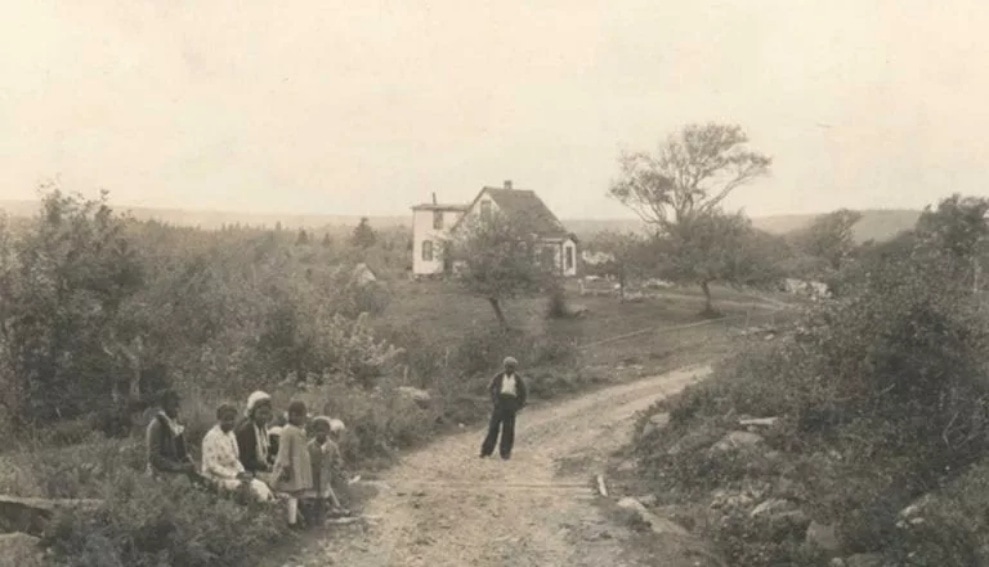
KJIPUKTUK (Halifax) – It seems we in the African Nova Scotia community have taken a backward step from our traditional Black family values.
With all the racism and hate we faced for hundreds of years, we still maintained Black values. Many would say our values were sacred, and although every generation is different, we always seemed to cling to the things that kept us grounded and inspired.
Our values in my opinion were basic, necessary and of great value.
Things Black family valued included respect, honour, chores, hard work, cooperation, support, encouragement, time honored traditions, skill development, responsibility, consideration, honesty, togetherness, meal traditions, prayers, bedtime stories, sharing of history, compassion and kindness, etc.
Our elders were treated with the highest degree of respect, they were valued for their insight and life knowledge, they were indeed the glue that held the family and the community together. They did it all and deserved the respect that was given. Our elders passed on our history, their knowledge and their skill set. They took care of their children, grandchildren and often their neighbor’s children. Our elders would counsel us on respect, safety, managing resources, cooking, cleaning, staying healthy, praying, planting, harvesting, cooperation and the list goes on-and-on. They were our guiding light and our beacon of hope.
Quite often in the African Nova Scotian community, elders would share their homes with their married children and grandchildren, due to economic instability.
Our women elders (the backbones of the African Nova Scotian community) did amazing things, some were midwives who delivered children into this world, they took care of children, they mended wounds, prepared preservatives for winter and hard times, they would knit clothing, make and mend clothing, prepare meals, read and tell stories to their children and again the list extensively goes on.
In days gone by we valued having our meals together no matter how little we had for consumption, we talked, listened to radio together, we would sing together and indeed dance together.
The African Nova Scotian community valued appropriate age friendships, children would most often be encouraged to have friends in their same age bracket, this would encourage practical development and allow for children to be children and center their thoughts and actions appropriately.
African Nova Scotians valued standing together during hard times and good times, we shared and we cared. We would share food, but never owe the person next door because the person next door was well aware that if they needed something it was just a matter of asking and one would receive if it was available. There was also a well-established barter system where during harvest if one grew potatoes and their neighbor grew green beans, some potatoes were traded for some green beans.
African Nova Scotians had strict discipline, sometimes too much, for their children, and their children knew what was expected. There were established boundaries that were never to be crossed. For example, children could and would never call an adult by their first name, they would always use Mr. or Mrs., more commonly they would refer to an older person as Aunt or Uncle, Granny, Gramps, etc. I am glad to report this continues.
Back during the 50s, 60s, and 70s there was very little crime in African Nova Scotian communities, and when there was the community would discuss what went down in community meetings and quite often many things would become a part of Sunday Church service. The whole community would encourage individuals that might have made a mistake to take ownerships and parents would never hold a child up in wrong doing of any kind. If you came home with money and you were unable or unwilling to provide a reasonable explanation, quite often you were marched back to the last place you were and the situation was addressed and resolved one way or another.
If there was sickness in the family or in the community, all hands were on deck.
It has been a long and arduous journey for African Nova Scotians during the past 400 plus years.
How did we ever manage to make it this far?
Most would say strong time honored values, a strong belief in God, a sense of community, supporting one another (embracing us instead of me), perseverance, an indomitable spirit, pride, dignity, hard work and genuine respect.
In most if not all African Nova Scotian communities people planted their own food, caught fish, raised chickens, owned at least one horse, caught rabbits, raised pigs, and cut hay for their animals, etc.
During the latter part of September of each year was harvest time, a very special time. This was not only the time to take vegetables out of the ground, cut and bundle hay for animals, stew apples to make jams and bottle them, make chows and a variety of preservatives, slaughter pigs and chickens and salt the meat down for winter.
Most community members participated in the harvest, including children. After the harvesting was all done, it was celebration time. There were celebrations in church to give thanks, and dances in all communities that had a harvest. There were also dinners held at most homes, and as mentioned above, the sharing of crops and the exchange of some goods.
And most times in late July or early August of each year community picnics were held. Games for children, food, visitors from other neighboring communities, prayers, dancing, singing, the return of family members and so much more.
During these times and also during times when fathers and sons, mothers and daughters would venture out into the woods for a walk, a parent quite often would point out tips of survival in the wood if stranded. For example, berries to eat, certain bark on the tree for healing tea, how to find or create a safe space for resting if one had to spend the night and how to make a fire if one had anything made of metal and so much more.
During these times and most of our existence here, the devil/oppressors were always active bringing drugs into our community, promoting division, suppressing our way of life so we would become more dependent on what they were selling.
Our Black family values were a strong commitment to survival, and part of our heritage, culture and lineage.
“As African Nova Scotians we have always tried to give our children what we didn’t have, but quite often we failed to give them what we did have.”
Peace Be Upon Us!
Raymond Sheppard
See also: Review: Jim Crow also lived here – Growing up Black in New Glasgow, Nova Scotia
With a special thanks to our generous donors who make publication of the Nova Scotia Advocate possible.
Subscribe to the Nova Scotia Advocate weekly digest and never miss an article again. It’s free!




Thank you Raymond for writing and giving us this timely gift and reminder of the pride, culture, love, respect and resilience embedded in our communities fabric! Ubuntu!
Wonderful article, thank you!!!